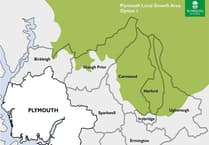SOUTH Hams beaches have met stringent new European standards for bathing water quality - out of 17 examined, 10 were rated as excellent.
The tough new standards, set by the recent European Union’s ‘bathing water directive,’ replace current water testing regulations first introduced in 1976.
From November 2015, bathing waters will be classified as either excellent, good, sufficient or poor, with the water quality standards for the new classifications being much higher than those of the original bathing waters standards.
The quality of water is monitored throughout the height of the bathing season, from May 1 to September 30.
Bathing water quality can be affected by many factors outside water companies’ control, such as rainwater running off roads and roofs, run-off from agricultural land, sewage from privately owned treatment works and septic tanks, boats or even animals - such as dogs or seabirds on the beach.
This can be made worse by heavy rain, therefore a quick reaction to problems by council staff is crucial to helping maintaining these high standards.
Leader of South Hams Council, Cllr. John Tucker said: ‘We are absolutely thrilled to have all of our beaches meet these tough new regulations. This is great news and has been made successful by collaboration between ourselves and our partner agencies in looking after our beautiful beaches and bathing water.’
Richard Gilpin, South West Water’s head of waste recovery and environmental protection for Devon said: ‘We have invested more than £2billion to improve bathing water quality across the region over the past 20 years.
‘More recently, in 2014-2015, South West Water invested a further £20million to deliver even cleaner seas at nine beaches in Dorset, Devon and Cornwall which were considered to be at risk of not meeting the new standards.
‘This included a £7million scheme to deliver even cleaner seas for Mothecombe, which was successfully completed in time for the start of the 2015 official bathing water season, so we’re delighted that Mothecombe was rated sufficient this year.
‘In addition, between 2015 and 2020 we will spend £463million on improving the region’s sewerage network and treatment works.’





Comments
This article has no comments yet. Be the first to leave a comment.